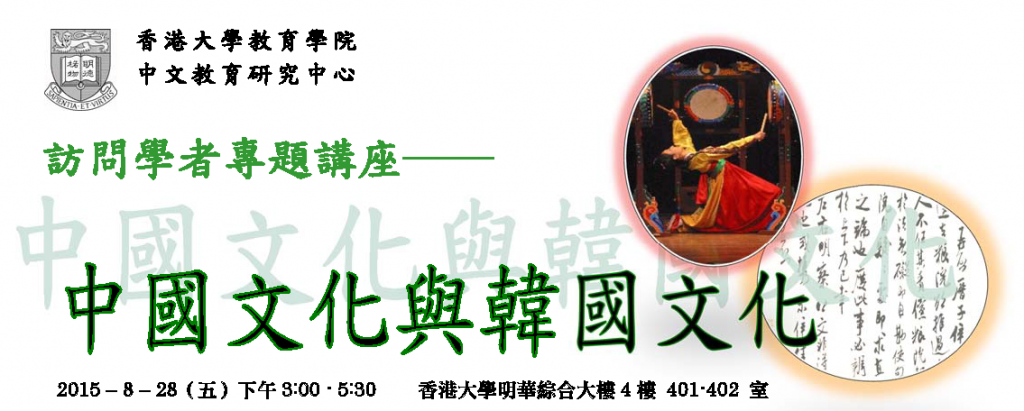Date: 28 August 2015 (Friday)
Time: 3:00-5:30 p.m.
Venue: Room 401-402, 4/F., Meng Wah Complex, HKU
Language: Korean (with simultaneous interpretation in Putonghua) / Putonghua
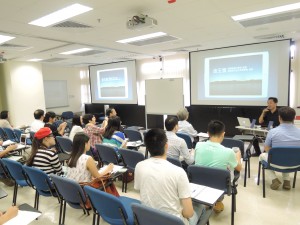
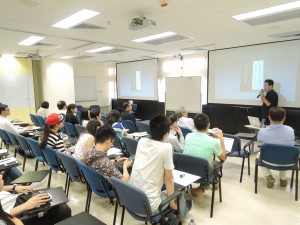
Topic (1): Relationship between Korean Culture and Chinese Traditional Culture in the Sinosphere
Invited Speaker: Prof. Kim Wangkyu
Professor of the Korea National University of Education, South Korea;
President of the Korea Association for Han-Character and Classical Written Language Education
Abstract:
Before the publication of “Hunminjeongeum” (known as ‘hangul’, i.e. Korean alphabet) in the 15th century, Han characters (known as ‘hanja’) was the only written language in Korea. All the document and literature that recorded the wisdom, values, ideologies and experiences of Korean were written in Han characters and classical Chinese. Hence, Han characters and classical Chinese are not only the most important tools to record traditional Korean culture, but also the origin of Korean traditional culture covering a wide range of areas including language, clothing, food, housing, wedding, funeral, printing, architecture and so on. The traditional culture between Korea and China are closely related in the Sinosphere. In view of the challenge coming from the diversified values and moral issues in the modern societies, the speaker will share his insights from the perspective of the traditional culture in the Sinosphere and discuss the relationship between the cultures in Korea and China.
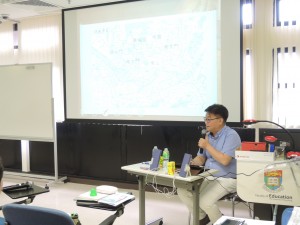
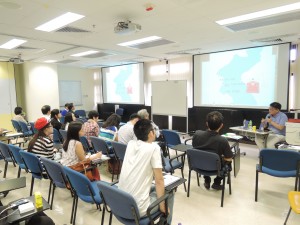
Topic (2): Seoul and East Asian Traditional Culture
Invited Speaker: Dr. Heo Chul
Lecturer of Sung Kyun Kwan University, South Korea;
Steward of the Korea Association for Han-Character and Classical Written Language Education; Trustee of Society for Korean Classical Chinese Education
Seoul, formerly called ‘Hanseong’ or ‘Hanyang’, is the capital of South Korea. It was the capital of the Kingdom of Joseon in the past. Both the location and the name of Hanyang were based upon the classics and ideas of Confucianism.
Many people know that Korea use Hanja and classical Chinese as part of their written language. But they may not know the features of Korean classical literature, history, philosophy and science as well as the real situation of today’s Korean language. In addition, people may not aware of the educational value and importance of Han Characters and classical Chinese for Korean. Apart from the pop music and drama, people seldom eager to find out the similarities and differences of the traditional culture between Korea and other East Asian countries.
This presentation will introduce different aspects of East Asian traditional culture consolidated into Seoul, and compare the traditional cultures between China and Korea.
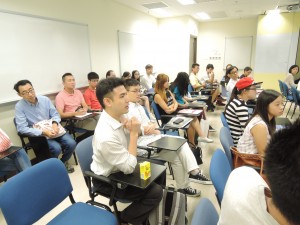
The seminar was well received by 35 participants coming from within and outside the University.


